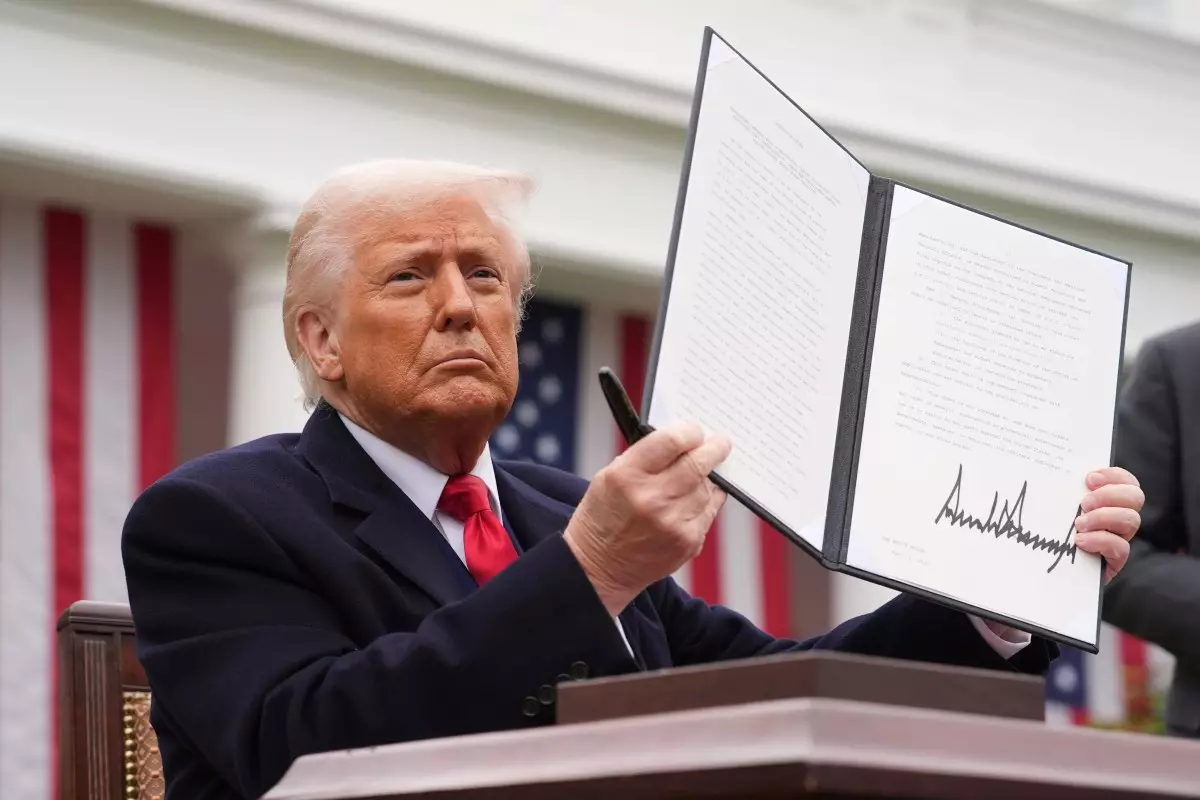The recent decision by the Trump administration to carve out exemptions for the technology sector amidst a sprawling tariff framework is a pivotal moment for the industry. President Trump, while maintaining a base tariff of 10%, has notably elevated the tariffs on Chinese imports to unprecedented levels, notably 125%. However, the announcement that certain categories, including smartphones and semiconductors, will be exempt from these exorbitant tariffs signals a potential shift in the narrative surrounding the tech industry’s viability amid geopolitical tensions.
This decision may reflect an understanding of the integral role that technology plays not only in the American economy but also in global commerce. The tech sector, which heavily relies on components manufactured in China and other countries, had anxiously awaited clarity on how these tariffs would impact their operations. By offering exemptions on critical products, the administration has somewhat alleviated the immediate pressure on tech companies, allowing them to breathe a little easier in an otherwise tumultuous economic environment.
Impact on Manufacturing Sentiments
President Trump has long championed the idea of revitalizing American manufacturing. However, the dream of manufacturing devices like the iPhone within the United States remains a complex and often debated issue. Many industry experts question the feasibility of such an endeavor, given the established supply chains and costs associated with domestic production. The notion of an American-made iPhone often feels like mere fantasy, overshadowed by economic realities and the intricate web of global trade.
Critics argue that while bringing manufacturing back might be a noble goal, it is not always practical. The skilled labor, resources, and cost-efficiency found in other countries present significant challenges for any substantial shift in production. The tariff exemption could reflect a strategic retreat from the overly ambitious “America First” manufacturing vision, recognizing that collaboration with international manufacturing remains crucial for industry sustainability and growth.
Investor Optimism and Future Challenges
The announcement of these tariff exemptions has spurred jubilation among tech investors, with experts like Daniel Ives likening the news to a “dream scenario.” Companies reliant on the seamless flow of technology components, such as Apple and Nvidia, stand to benefit immensely from the relief from steep tariffs. For consumers, this exemption could mean avoiding significant price hikes on essential electronic goods, a welcomed reprieve in an age where inflation is a pressing concern.
However, as the tech industry savors this momentary relief, caution is warranted. There are indications of ongoing investigations that could lead to new restrictions, particularly concerning national security and the semiconductor industry. Such developments could turn the tide against the current sense of optimism, complicating the operational landscape for tech companies.
The Road Ahead
The tech industry, while celebrating an unexpected boon from tariff exemptions, must navigate a precarious path ahead. The balance between maintaining competitive pricing for consumers and ensuring national security through rigorous scrutiny of foreign imports remains delicate. The trajectory will undoubtedly be shaped by both political maneuvering and market demands. As companies recalibrate their strategies in light of these changes, the ongoing dialogue about manufacturing, tariffs, and technology’s role in the economy will continue to evolve.

